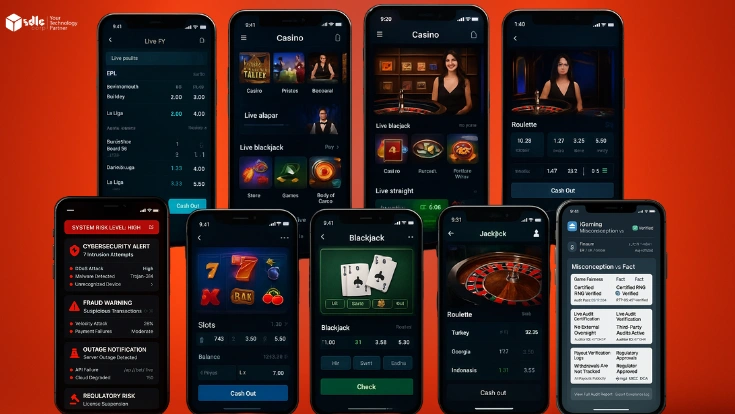The thrill of real money games is not just about luck and skill but also about psychological resilience. Whether it’s poker, online casinos, or fantasy sports, players experience a wide range of emotions when they win or lose. Understanding the psychology behind winning and losing can help players improve their mindset, manage risks, and develop better strategies.
This blog explores the mental dynamics of winning and losing in real money games, how it affects player behavior, and what strategies can help create a healthy and balanced gaming experience.
The Psychology of Winning
Winning in a real money game triggers dopamine release, the brain’s pleasure chemical, leading to euphoria, excitement, and increased confidence. However, winning can also create cognitive biases that can negatively impact decision-making.
1. The Hot Hand Fallacy
Players often believe that a winning streak will continue indefinitely.
This can lead to overconfidence and riskier bets.
2. Reinforcement Learning
Winning reinforces behaviors, making players repeat certain strategies.
While this can be good, it can also lead to repetitive mistakes if based on luck rather than skill.
3. The Illusion of Control
Winners often believe their skill is the primary reason for success, even in games of chance.
This can lead to overestimation of one’s abilities.
The Psychology of Losing
Losing can trigger frustration, anxiety, and even desperation, leading to emotional decision-making. How a player responds to losses can determine their long-term success in real money games.
1. Loss Aversion
People fear losing more than they enjoy winning.
This can lead to risk-averse behavior or irrational decision-making to recover losses.
2. Tilt
A psychological state where frustration leads to reckless decisions.
Often seen in poker, where players make impulsive bets after losing a big hand.
3. The Gambler’s Fallacy
The mistaken belief that past losses increase the chances of future wins.
Leads to chasing losses, which is a major cause of problem gambling.
Strategies for a Balanced Mindset
The best real money players understand that success comes from a disciplined approach to gaming. Here’s how to stay in control:
1. Emotion Management
Recognize emotional triggers and take breaks when needed.
Example: A poker player noticing frustration should step away and regain composure before continuing.
2. Bankroll Management
Set strict betting limits and stick to them.
Example: Allocating only 5% of available funds for high-risk bets.
3. Learning from Losses
Instead of chasing losses, analyze mistakes and refine strategies.
Example: Reviewing past games to identify errors and improve future decisions.
4. Setting Time Limits
Avoid excessive play by setting gaming session limits.
Example: Using timers or self-exclusion tools to maintain healthy gaming habits.
5. Developing a Pre-Game Routine
Prepare mentally before playing to enhance focus.
Example: Meditating or reviewing strategies before engaging in high-stakes gaming.
6. Avoiding Alcohol & Fatigue
Impaired judgment leads to poor decision-making.
Example: A trader ensuring they are well-rested before making financial bets in crypto trading games.
7. Practicing Rational Decision-Making
Make decisions based on logic, not emotions.
Example: Avoiding risky bets after consecutive losses and sticking to a strategy.
8. Taking Breaks and Stepping Away
Refreshing the mind prevents emotional decision-making.
Example: A casino player leaving the table after a losing streak instead of attempting to recover losses immediately.
9. Diversifying Gaming Activities
Playing different games to avoid over-reliance on one strategy.
Example: A player alternating between poker and blackjack to improve overall adaptability.
10. Seeking Professional Advice
Learning from experts can refine gaming strategies.
Example: Following professional gamblers, reading books, or enrolling in online courses about strategic gameplay.
For those looking to build engaging and psychology-driven gaming platforms, professional Game Development Services can help create immersive and balanced gaming experiences.
Conclusion
Understanding the psychology of winning and losing is essential for sustainable gaming success. Players must recognize cognitive biases, emotional triggers, and risk management techniques to make rational decisions. While winning can boost confidence, it is crucial to remain grounded. Similarly, losses should be treated as opportunities for learning rather than emotional triggers for reckless play.
For businesses looking to build sophisticated and engaging real money gaming platforms, check out our Real Money Game Development solutions to create a fair, rewarding, and player-focused ecosystem.
🚀 Mastering the psychology of gaming can transform both players and game developers into strategic powerhouses!

















